Note from the Editor-in-Chief
BharatShakti’s journey begins with best possible start. An exhaustive interview with India’s Defence Minister (Raksha Mantri) Manohar Parrikar by our founder Nitin A. Gokhale, the well known security analyst.
Mr Parrikar talks freely and frankly, a reflection of the transparency he has always promised in the functioning of the Ministry of Defence. He dwells on policy issues, the grand contours of India’s $100 billion acquisition plans, indigenisation of defence production, giving the MSMEs their fair share, Strategic Partnership models and its symbiotic relationship with MSMEs, research and development.
He also elucidates issues regarding acquisition of strategic platforms, Chief of Defence Staff (CDS), a possible new promotion policy for top military leadership, the new Strike Corps, officer shortages and also One Rank One Pension.
It is a tell-all package that the reader is bound to find captivating. It is also a reflection of the commitment of the current Defence Minister to get the combat potential of the Indian Armed Forces in sync with India’s national objectives and foreign policy goals. Read on.
Brig SK Chatterji
Editor-in-Chief
NG: So what are your thoughts after a year in office?
RM: Reflection on the past one year gives me the satisfaction that I could change a lot of issues and handle a lot of priorities in defence.
Policy Issues
NG: How are we progressing in terms of policy frameworks to guide equipment induction?
RM: There are some issues which are on the way to completion. For example Defence Procurement Procedures; its review has been completed. It is in its last stages of being finalized. Meanwhile, the urgent issues have been addressed. For example Offset Policy, Policy on Complaints which was derailing the acquisitions earlier, have been clearly spelt out.
NG: For complaints, how have you changed the earlier method? Trivial complaints and anonymous complaints; how will these be handled?
RM: If there is some component in an anonymous complaint which has substance, and on verification found correct, action will be initiated. However, complaints will not derail the process of procurement until proven prima facie. So a complaint will be processed along with the procurement; but the process is not derailed. Secondly, if the complaint comes from the participant, one of the tendering parties, if it is found frivolous, he can be penalised. Of course, we have taken precautions and will refer to the Ombudsman if any action has to be initiated, otherwise we close it. Unless you find prima facie evidence in the complaint, the process does not stop. The acquisition process, which was often getting derailed because of frivolous complaints – sometimes even cancelled, will continue.
That’s one issue. Second issue – Offsets. We realised the earlier Offset rules had some very regressive policies. Like, for example, you could not change the IOP (Indian Offset Partner). This was a very unreasonable condition because Offsets are executed over a long period of time. Sometimes the product becomes obsolete, sometimes the IOP closes down. Services, for example, were being kept out of the ambit. These have been included. So most of the issues pertaining to offsets have been addressed, matters regarding complaints have been addressed, foreign exchange rate equalization – that means what was available to PSUs are also being now granted to the private sector. PSUs were granted protection from fluctuation of exchange rate. That is now granted to private sector.
It was unfair actually, since we say that it should be a level playing field. Level playing field is being ensured for local industries. For example, in Offsets, Buy Global, if it was an Indian company, then you had to do 50% indigenous. Whereas for a foreign company it was 30% Offset. So now we have levelled it both at 30%. Like that, even a price comparison now is being done without the statutory taxes; because imported supplies do not undergo many of the taxes. These are some intermediate steps which have been taken already. We intend to come out with DPP 2015 before mid-December. We should be able to notify. So that should change the pattern.
Acquisitions
Now in the case of earlier RFPs, almost Rs 90,000 crores contracts have been signed during my tenure. Another almost 70,000 crores are in the pipeline. They are in the final stage. After the final approvals are obtained, they will be contracted. I expect in the next 6 months, another 50,000-60,000 crores. In the next six months, the total figure of contracts signed will be Rs 150-160,000 crores. And almost another Rs 95,000 crores are in negotiation stage. So in the 2nd year, you will find that around 1,30,000-1,40,000 crores contracts would have been signed. So, the earlier RFPs are now being speeded up. I have to do it with caution because funds availability also has to be worked out. I expect by March, at least one or two contracts in guns procurement will be finalised and the supply will start next year. Lot of similar exercises are being done in missile, submarines, fighters, helicopters, and in the second year they should be on the way.
NG: What about Rafale?
RM: Rafale is in final stages; commercial negotiations should be beginning any moment. Of course the Paris incident may delay it by a couple of weeks.
NG: So the 50% Offset has been agreed upon.
RM: Overall framework is almost finalised. So commercial negotiations should be on, could be on, but this incident might cause delay. But I expect by December-January we should be in a position to close the deal.
In defence, we have to look towards self-reliance. In the figure of Rs 90,000 crore that I gave you, almost 70 per cent is indigenous, Buy Indian or Buy and Make in India. Only 30 per cent of the contracts are in the category of Buy Global. The projects for which AONs (Acceptance of Necessity) have been granted, the value is around Rs 1,05,000 crore. In that, almost 88 per cent is Buy Indian and Buy and Make Indian. These AONs will be reflected in next year’s contracts. Whatever AONs have been granted will be progressed to RFPs in the coming year. Lot of indigenisation efforts are being put in. It is not easy to change the mindsets. But all the armed forces have been given clear indication that they have to give priority to Make in India and indigenisation and dependence on foreign source should be reduced. Of course, if there is some technology issue, we can still go ahead and get that but the trend is that by next year the ratio of 70:30 (imported to indigenous content) should change by at least 10 per cent. So the target is that annually you reduce the foreign component by 10 per cent so that in four to five years, you reverse the ratio – from 70 per cent foreign import you go to 70 per cent indigenous content. You see, almost 20-25 per cent imported content is inevitable. Some raw materials cannot be manufactured because of technology gaps or lack of economies of scale and because the mineral is not available and in some cases the quantum, the volume does not justify making it in India. It will be too cost prohibitive.
DPP 2015
NG: The rigid and opaque decision-making in MoD, has it been addressed?
RM: The earlier DPPs were all procedure driven. In DPP 2015, we are considering an arrangement where besides the procedure, of course we have to follow procedure, but wherever unforeseen difficulties come, there should be a mechanism to fall back on some principles. The preamble will basically describe the methods for solutions to fall back upon through a structured mechanism. Secondly, single vendor situation is also being addressed. Whereas transparency demands there have to be more than one entity in competition, after taking proper oversight and after taking proper technological review, if a particular product’s SQRs cannot be changed and there is no possibility of multi-vendor situation, single vendor situation can be addressed with proper precautions in the DPP itself.
Even the SQR and field trial concept is under consideration to be modified. SQRs should be based on operational requirements. And field trials should be based on criteria that are generally available in existing equipment. In the case of costly equipment, and even the not-so-costly equipment, a supplier cannot be expected to comply with all SQRs you require in the trial samples. This aspect needs to be taken into consideration for field trials to ensure wider participation.
Strategic Partners and MSMEs
NG: What about the concept of choosing strategic partners?
RM: Getting in Strategic partners does not mean they will be in all acquisitions. It is only in the areas where technology and investment are high you cannot have multiple suppliers. Suppose you want to set up an assembly line for manufacturing fighter planes with, how do you select an entity? There will hardly be one or two options. Very few will have the financial muscle, technological capabilities and manufacturing ability. It requires a well-established management set up. The items that we are talking about are very few: submarines, helicopters, fighter planes and may be a couple of more. Now this selection does not keep the MSME sector out of the scope. We can always ask the strategic partners to ensure that so much percentage of the indigenised content be reserved for the MSMEs or for that matter those who source supplies from MSMEs may be given a higher weightage. There are many ways of doing it.
NG: How are you encouraging the MSME Sector?
RM: We are in the process of finalising the DPP in which many difficulties faced by MSMEs are being addressed to ensure that financial viabilities of MSMEs are ensured and they are not pushed into a financial crisis.
NG: You are also looking at encouraging indigenous design and development?
RM: Yes, indigenously designed and developed product is being given the top priority and it will form a vital part of DPP 2015. But I want to make one point very clear: The DPP even after finalisation may require changes depending on the difficulty we face. Even after DPP 2015 is finalised it still has the possibility of further correction to ensure smooth acquisition. It is not a static but a dynamic policy. Of course the changes can’t be too frequent. Transparency and changes are meant for giving everyone a level playing field. It doesn’t mean you delay decision-making.
Policy: Agents and Representatives; Bans and Blacklisting
NG: What about the decision to not put a blanket ban on companies found in wrong doing? And allowing authorised representatives?
RM: This policy will come out along with DPP 2015. Agents are authorised representatives only and not middlemen. We are going to define what agents mean. Currently, this definition does not exist. A person who provides technological expertise, management support for a fee which is reasonable and which does not depend on the value of the contract or outcome – positive or negative – of the contract will be allowed as agent.
NG: What about blacklisting policy?
RM: The current policy is the moment allegations are made, the company is put on hold/suspended or blacklisted. Now if anything suspicious is found, it will go through the complaints procedure. If prima facie anything is found to be wrong, notice will be issued and opportunity will be given to the party. But if it is serious, then we may proceed with temporary measures. Temporary measures are, for example, put on hold, suspend. Once temporary measures are initiated, a designated committee will go into the merits of the case. If they find that there is prima facie evidence of wrong doing, they will continue the temporary measures. If they conclude there is nothing, they can withdraw the temporary measures. There will be a timeline for temporary measures. If there is evidence of serious fraud or wrong doing the committee can impose financial penalty, invoke the integrity pact bond or impose cost as deemed fit, or ban the supplier. The existing issues will also be dealt with by the same committee comprising MoD officials and some experts with knowledge of vigilance matters etc. Basically, what we are trying to do is to have a system that hands out graded punishment commensurate with the magnitude of the wrong-doing. This is in the final stage of being approved and will be issued along with DPP-2015.
DRDO and Product Upgrade
NG: Coming to DRDO and other DPSUs. Their performance has been mixed to put it mildly. How would you correct the situation?
RM: In the last one year, we have managed to reenergise them. There is finality to some of their products. For example, some days ago, I inducted the locally developed Torpedo-decoy system for Indian Navy ships.
NG: What about LCA, although it is not directly DRDO?
RM: Yes, the LCA model is being given a final shape. Let me tell you in product development, nothing comes perfect, be it an Indian product or a foreign product. Take the example of the Boeing P 8I. They have a long track record but there were some glitches. Over the last two years, most of the glitches were taken care of. The company reacted quickly and most of the issues are sorted out now. There are still some issues but I am sure these will be taken care of in the next one year, so that there is 100 per cent efficiency in this vital asset.
If that is the case with a well-established company like Boeing, how do I expect ADA or HAL product to be perfect in the first instance? So we inducted the LCA and by March 2016 most of the initial problems would be taken care of. And the production line will be initiated and the first squadron of LCA will start flying for the IAF. Once they start flying, further problems, if any, will be sorted out over the first batch. In principle, approval for first 100 LCA 1 A, procurement has been accorded, as per requirement of the Air Force and as agreed to by all concerned.
By mid-2016 we should have a very clear direction under Make in India for submarines, helicopters, guns and aircraft and missiles. When I set a timetable, this is MoD timetable but there are other intangibles that may delay the programme a bit, but in 2016 we will have a very clear roadmap on these five important programmes such as fighter planes, submarines, helicopters and missiles.
Revenue Expenditure
NG: These are all items of capital expenditure but how are you tackling the delays in revenue procurements. Very often essential supplies get delayed when decisions are not made quickly.
RM: First of all, the bottlenecks in decision-making have to be cleared. Timeline for clearances have to be compressed. We are monitoring every item now. For example, in case of ammunition, the OFBs are being continuously exhorted to improve efficiency and increase production. We are giving them five years indent and clear orders three years in advance so that they can plan and source their raw material in advance. From January, we will be allowing them longer duration rate contracts so that raw material becomes cheaper and assured. Otherwise, they used to take a lot of time in finalising supplies. This year, OFB has delivered around 15 per cent higher output with improved quality. So by 2017, my ammunition requirement should be adequately addressed.
Acquisition of Strategic Assets
NG: How are you going to address critical gaps in India’s defence preparedness: Air Defence Artillery, Field Artillery, and Submarines, all these are in short supply. Will you go for some critical purchases? Will the OFB manufactured gun also be one of the major inductions?
RM: A few issues have been decided. We are working on a submarine improvement plan for the first time. Initially, for submarines we have asked Mazagaon Docks, Scorpene submarines; to speed up the process. We are considering whether we need a few more of that class. Some other submarines, through the Make in India route; it will take another six months to decide who is the Strategic Partner. Air Defence (AD) guns are being looked into, I wouldn’t like to give the details now, but we are also working on S400 Russian weapon system. We are also upgrading the existing AD systems; it should take care of immediate requirements. I think, in the next two to three years the gap should be addressed.
NG: You had been to Russia recently, what is the status of the 5th Generation Fighter Aircraft project?
RM: The meetings have started. We are working on the next stage of designing, research and development and the same is expected to be concluded at the earliest.
NG: What about the concerns over poor serviceability of Su-30 aircraft? Did you convey it to the Russians?
NG: The issue has been highlighted and our concerns conveyed. The Russians have promised to ensure that spare parts will be made available smoothly and the availability of the platform improved. Some of the spares may be covered under Make in India programme.
NG: What about our strategic platforms, is India negotiating with the Russians for leasing one more nuclear submarine? We were also working on our own. How is India’s own nuclear submarine programme progressing?
RM: All strategic programmes are progressing as per schedule.
NG: One question about the Mountain Strike Corps what is the status now?
RM: Regarding Mountain Strike Corps, the same was approved without considering adequate financial requirement. However by re-adjusting certain aspects of capital expenditure, we will ensure that the same is properly raised and used.
NG: So, where is the money? We have so many plans, so many sanctions. Are you getting adequate money from the government?
RM: I think the current amount which is given, though I will not say it is an excellent amount, but the amount if used judiciously for the right procurement the gaps in modernization can be removed in the next three to four years. Judicious use of money is required. What I would say that there were something like 300 and odd proposals. They have been now been segregated into very-very urgent, urgent and not so urgent. Prioritization of acquisition can ensure that modernization programme of the armed forces is on track in the next two years.
Structural Reforms
NG: You separated the posts of DG, DRDO and Scientific Advisor to Raksha Mantri. Has that arrangement worked out better?
RM: I am satisfied with the arrangement DG, DRDO is also Secretary, R&D and the workload of these two posts virtually made the additional responsibility (of Scientific Adviser) impossible to handle.
NG Going ahead further with structural reforms in the way the ministry and the armed forces function, are you looking at some of the fundamental changes and reforms suggested by the Kargil Review Committee or the Naresh Chandra Committee?
RM: If you are referring to CDS or whatever name it’s to be called, it’s being actively looked into. As of now, it’s in the final stage of consultations. I think in the next few months, it should be on board.
NG: So the CDS will be basically looking at coordinating and getting the procurements of the three services together? What is the kind of role that is being envisaged?
RM: The role which has been envisaged has been worked out. So that while the three services remain more or less intact as it is, certain aspects will be handled by the CDS; basically coordinate the joint effort on procurement, so that the cost is reduced and the duplication and time lag, time period is reduced.
Review of Top Level Promotion Policy
NG: So you are acting seriously on this issue? What about a long standing feeling that date of birth alone becomes a criteria for promotions at the highest level? Are you looking at reviewing some of those systems and practices?
RM: I think these are issues that need consideration and we should ensure that military leadership at the highest level be the best.
NG: And merit should be the criteria?
RM: Merit should be also considered, at the same time, seniority does count. So a proper framework needs to be worked out. These are issues that need consultations and discussions before any finality is achieved.
NG: So, will you work on that?
RM: Let me work on CDS first wherein the appropriate selection process could be considered through proper mechanism to ensure best outcome.
Officer Shortage
NG: How are you tackling the shortage of officers in the military?
RM: One is Short Service Commission needs to be made attractive so that we engage more short service officers, thereby reducing the gap. The gap is more because more posts are created. It’s not exactly because there is a shortage. We are filling up the gap at the rate of 500 to 1000 per year. I think, used efficiently even the slight shortage can be taken care of. One of the ways is to encourage women officers in certain services.
NG: For Permanent Commission too?
RM: In some areas, yes.
Welfare Measures
NG: What about welfare measures for soldiers, for instance more married accommodation etc.
RM: For the first time we have speeded up the construction of married accommodation projects. This year they exhausted entire year’s budget by October. So we had to allot more budget to them. We are now constructing quarters/dwellings at the rate of 1200 units per month. So this year itself we will double the numbers which were completed in the last ten years – last eight years. This year the number is more than double
NG: More than what was achieved in the last eight years?
RM: Yes. The number of units of married accommodation completed in Phase II was around 9,000 out of around 69,000 taken up in the previous year. This year, the figure has already crossed 17,000 units.
NG: Now coming to OROP. The veterans are unhappy and say, this is not what they asked for. What is your take?
RM: Based on consultations, the OROP principle has been accepted which fulfills the long standing demand for more than 40 years. This has been done in spite of a huge financial burden of Rs 8,000 crore per year. As regards the period of upgradation (equalization) once in five years, the same was as per the Koshiyari Committee report. The issue of PMR has been addressed. As regards to prospective implementation of PMR not to be covered under OROP, let me assure that the same will be addressed appropriately in consultation with the armed forces based on their requirements. There are few other minor issues which could be addressed through the judicial commission. Let me assure the veterans that all grievances of theirs will be addressed appropriately and they should not fall prey to those who try and create confusion or spread malicious information.
DefExpo
NG: There was this rumor about you shifting the Defence Expo to Goa, what’s the reality?
RM: First of all the decision was taken long before I became Defence Minister. The problem came up because the Pragati Maidan was not available. In 2013 itself, this was communicated. During earlier regime the decision to shift it to various locations was considered. Goa was considered as a preferred location. When it came to me, I gave specific ruling.
NG: So it wasn’t your favored location, it was done earlier.
RM: No it wasn’t my favored location. The decision was taken earlier. The important issue is, Pragati Maidan was very clearly indicated as not available and therefore some alternative had to be decided in which Goa was recommended by the concerned as most favored location.

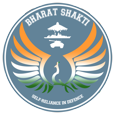


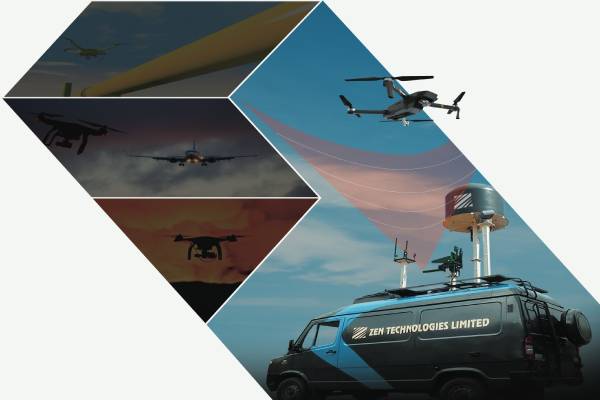
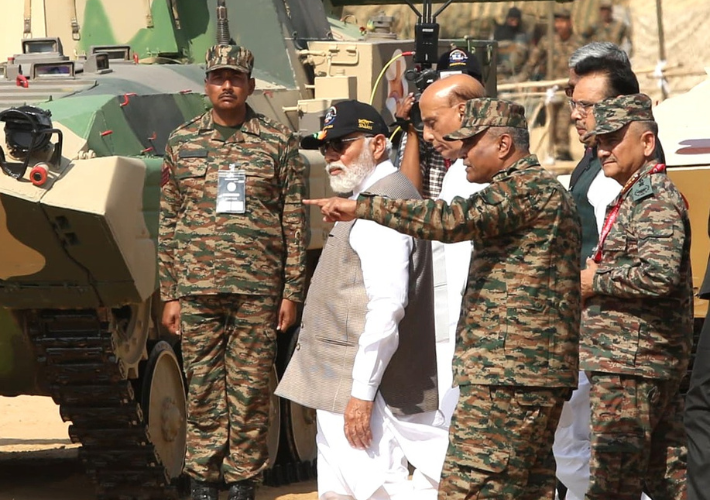
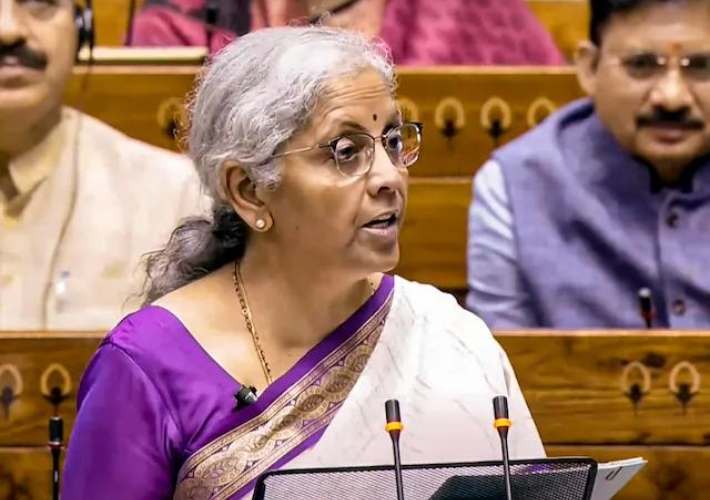
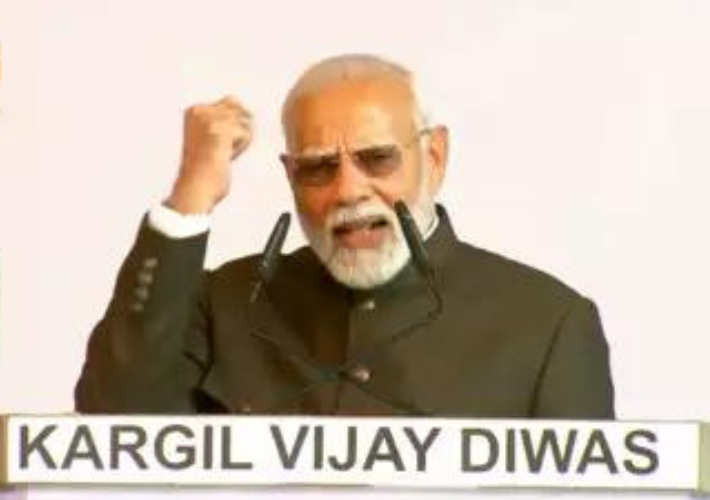
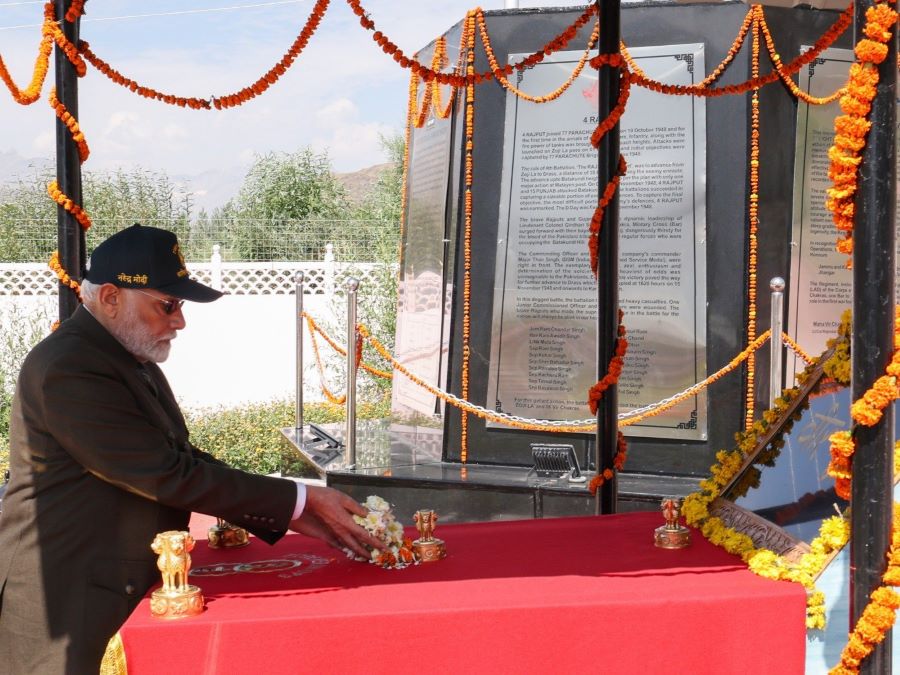
15 Comments
Nitin Goyal
This is first time a defence minister is talking about Indigenous procurement and we are seeing a long term strategy. He is very much clear that no product development can give a perfect product and he is creating a positive pressure on armed forces to involve in the product development.
Just in a short period of 1 year, Govt had created an industry with a potential turnover of USD 60-70 billion in next 10 years.This potential doesn’t consider the export potential and how with that export we cement our strategic ties. For example, by exporting Brahmos missiles to Vietnam, we are creating a stumbling block to China. We shall also think about exporting the same to other East-Asian countries and especially Taiwan.
We should understand that most of the technologies on the basis of which USA is an economic super-power is, were created for military and thereafter came to civilian use, be it internet, nano technology or drones.
Lt Gen V M Patil (retired)
Hi Nitin.
Congratulations on starting – BharatShakti.in. The issues you have raised with Hon’ble RM are of priority concern. We are happy to note that he has addressed them with vision, clarity, time bound priority and achievable action plan. Now all the stake holders have to operate with transparency and accountability. We sincerely hope they do! RM certainly needs periodical feed back on performers and bottlenecks.
May I suggest the following for consideration by your portal in your future interactions;
1. Restructuring MoD with Serving Officers from three services integral for policy and decision making!
2. Permanent inclusion of Security experts and NSA representatives in the Niti Ayog Planning cell.
3. Revisit Arms & Ammo production policies to include – Exporting of combat and non combat equipment to other countries .
Lt Gen V M Patil( Retired)
chandra
Thanks for a very detailed interview. Love the way the questions are structured and awestruck with Raksha Mantri’s understanding of issues…..
Brig P C Ipe (Retd)
Congratulations Nitin. Your interview with the RM has focused on all relevant issues and I am very impressed by his clarity and understanding of the complex acquisition process. Lets hope he is successful in streamlining the Defense acquisition procedure and manages to fill existing voids at the earliest. My best wishes to you and your team at BharatShakti.in.
Uma Sudhindra
Hearty congratulations Nitin and BharatShakti. Loved the structuring of the interview and the clarity with which the RM has addressed issues that haven’t been addressed for years. In the next part, could we also understand from him his views on cyber security, cyber intelligence in the Indian armed forces & strengthening our military diplomacy.
All the best to Team BharatShakti.
kunaal_g
Firstly, congratulations to Mr. Gokhale on his exclusive interview with our Raksha Mantri, Mr. Parrikar. The interview indeed made for fascinating reading and it is heartening to note that we finally have a Defence Minister who has got his priorities right .
As a concerned citizen, one was alarmed by the almost unending reports in the media on the gaping holes in India’s defence preparedness during the UPA government’s (and Mr. Antony’s!) infamous tenure.
In contrast, Mr. Parrikar’s well-articulated plans to plug these gaps are very reassuring.
Notwithstanding his plans for big ticket acquisitions like the Rafale, submarines etc. I’d be very interested to know why the Indian Army has cancelled trials for assault rifles and gone back to testing the DRDO’s Excalibur. According to the information available in the public domain, some of the biggest gun manufacturers like Beretta, SIG Sauer, Ceska were in the race. The DRDO hasn’t exactly covered itself with glory with the INSAS series. So, this cancellation appears to be a very retrograde step. The most affected will be the infantry soldier, who is the country’s first line of defence, and the most neglected. Planes and submarines come much later in the event of a conflict!
Rishabh Pandey
Dear Nitin,
Congratulations on this fantastic endeavour.
I have only recently started taking interest in matters related to defence and security and a site like this is a huge help to me and huge credit to you.
May I make a suggestion:
I know it would be very taxing initially, in terms of demands on your patience and time, but it would.increase effectiveness of the site many folds if there could be preface written for newbies like myself about the terms used, existing procedures and issues with them and the implications of new procedures.
Understanding of defence matters and challenges is very limited in our mainstream discourse and i really think that if we make it more accessible, we would see a very vigorous and much needed participation from public at large.
Regards
Aditya
Greetings to Bharatshakti! Kudos for the RM interview.
I have been reading for long that the acquisition process is too complex for layperson to understand etc.
The RM instead has been able to set an outline of how the whole system operates within the MoD without resorting to cover of “secrecy” that was used earlier to serve petty interests. Thank you!
BRIG AK MAINI
Congrats Nitin for starting Bharat Shakti portal
Your interview with RM has brought out the steps taken by the government. Suggestions given by Gen Patil are highly relevant and timely and should be taken up vigorously.
Wishing u all the best
MAINI
Col BL Verma
Thanks
scs bangara
I am not too sure whether an interview on burning issues alone would contribute to increasing the knowledge of informed readers. For instance, CDS has been under active consideration from the early stages of Parrikars tenure. Timelines have changed but not the content of his statement. What would be more pertinent is the trend on ongoing debates on the actual terms of reference of the role of CDS. By just adopting the solution given by the Naresh Chandra Committee we are unlikely to see any major improvements in structural solutions. Integrating MOD , changing the operational profile of the armed forces etc are burning issues. Going back to the Arun Singh committee report may yield better solutions.
Brig. Vijay Natu
A Very good beginning.This interview with the RM should be a periodic exercise, may be once a year so that we can learn what progress has been made on the issues taken up for implementation by the Defence Ministry. Well done Mr. Nitin Gokhale.
Brig M R Pattar
a very penetrating Q&A session which is informative and will address many apprehensions of all persons with an interest in matters militery
A Jai Singh
As it appears, the CDS will be just a little more than the present CISC. AS the Chairman of the COSC, he may wield some authority, but if he primus inter pares, that too will be marginal. Creating a CDS to just look at what the HQ IDS does presently, would devalue that designation – if the CDS is to be what he should be, he has to be the single-point operational authority which means that the Int and Ops functions of all there services should be placed under him. I don’t see any of the Chiefs allowing that to happen – one way of getting that done is through legislation but that in our case seems highly unlikely. It would also require a thorough re-structuring of th MoD which the bureaucrats wont let happen. Hence creating a CDS will yield little usefulness other than one more 4-star vacancy getting created. If he is designated the permanent Chairman COSC with no authority over operations or readiness or intelligence, how would that change the current structure in any way ?
Pingback: Manohar Parrikar I was lucky to know – Nitin A. Gokhale